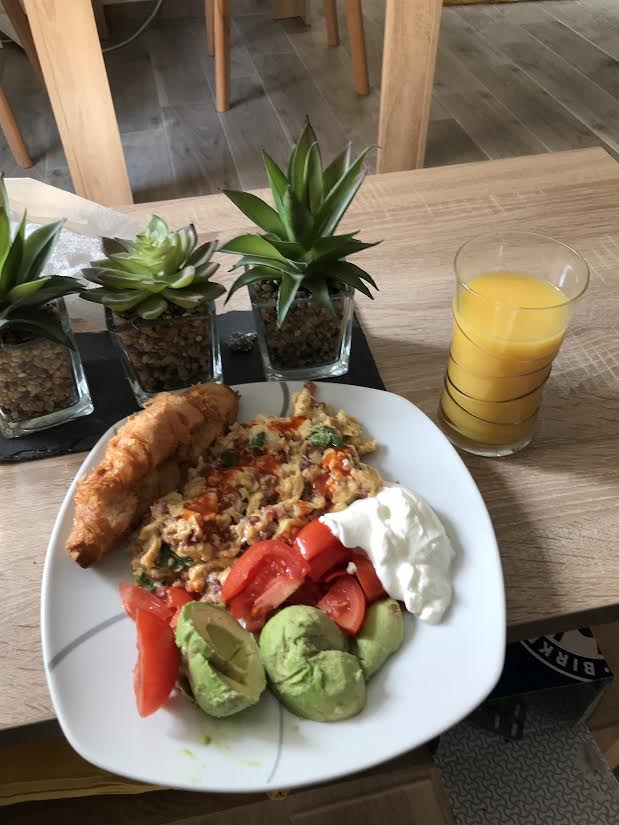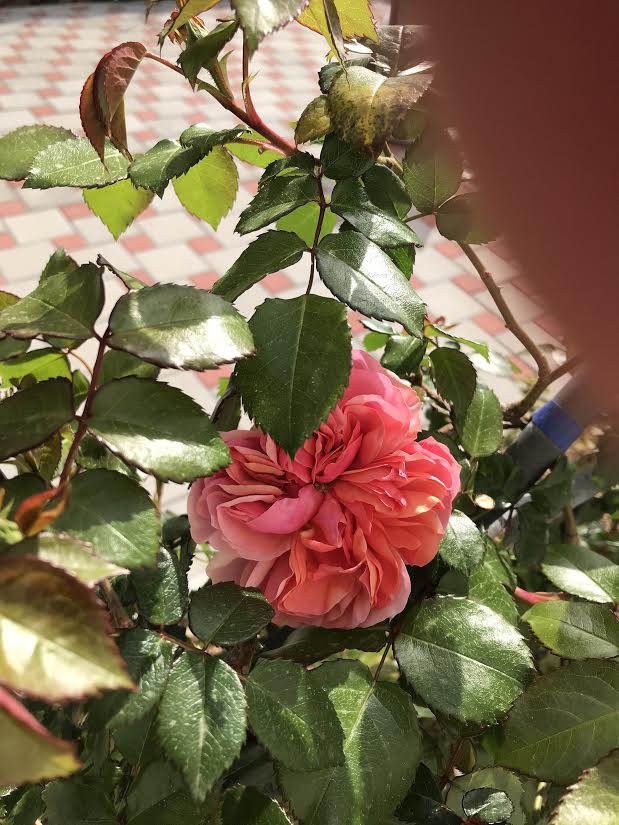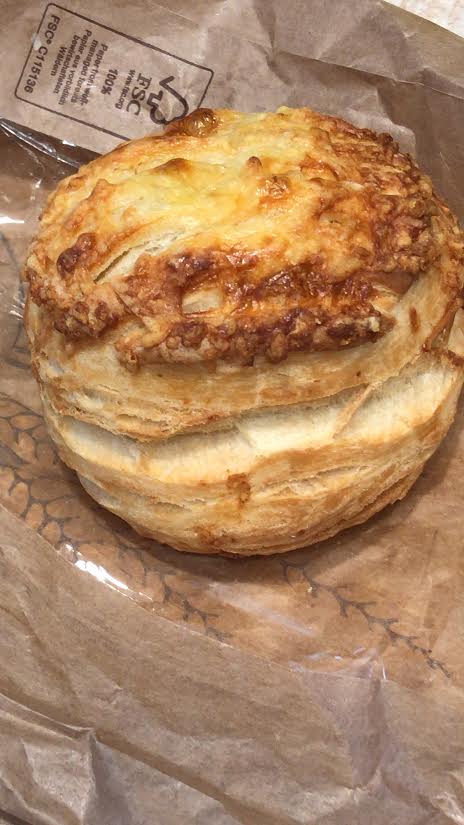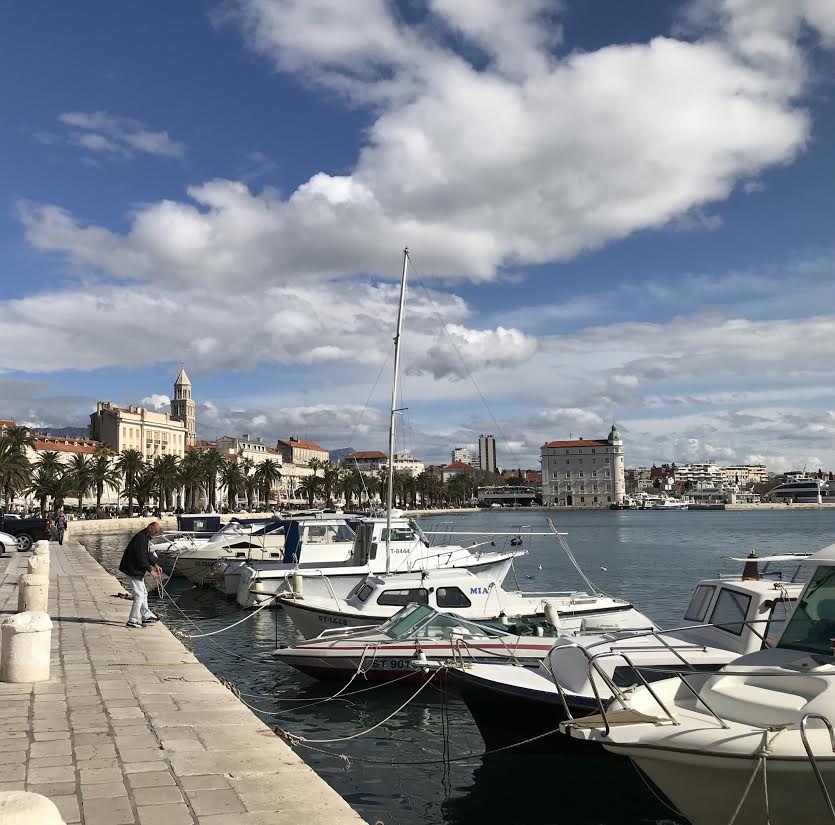April 6, 2020 - Do foreigners in Croatia feel more or less safe sitting out COVID-19 here than in their home country, and what are their experiences? A new series on TCN, with Rebecca Echevarria from California in Trogir as our 28th contributor.
Oxford University recently published some research on government responses to coronavirus which showed that Croatia currently has the strictest measures in the world. While inconvenient, this is a good thing in terms of reducing the spread of the virus, and I am certainly not alone in my admiration of the official Croatian handling of this crisis in recent weeks, both in terms of action and communication.
But what do other expats here think? And how does it compare with the response in their home country? Would they rather sit this one out here or there? In the first of a new series on TCN, we will be featuring expats from all over the world to see what their views are on life in corona Croatia rather than back home. So far we have heard from expats in Croatia from Romania, USA, Ireland, UK, Mexico, Argentina, Spain, Singapore, Holland, Canada, India, Hong Kong, Venezuela, Latvia, China, Honduras, Hungary, Moldova, South Korea and Germany. Next up, Rebecca Echevarria from California in Trogir.
If you would like to contribute to this series, full details are below. Now, over to Rebecca.
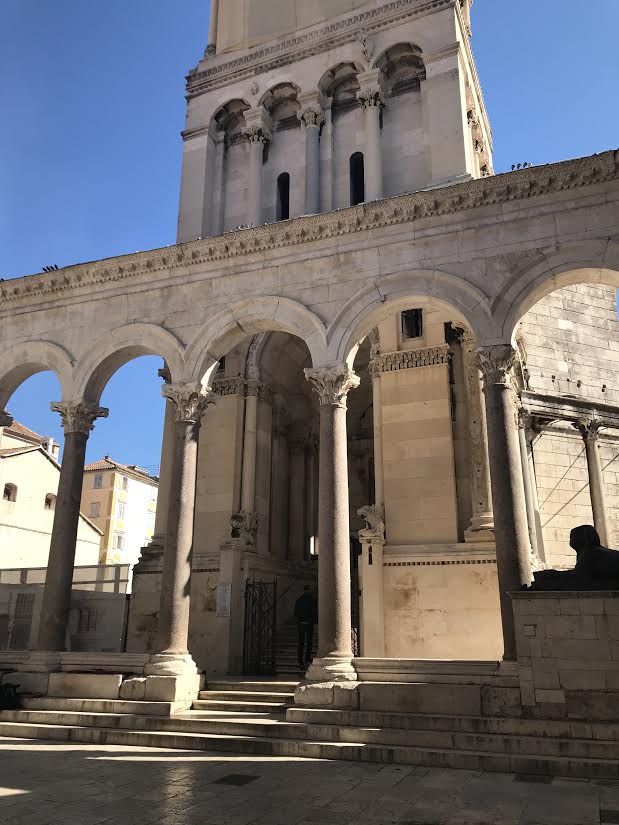
Firstly, how are you? Are you alone/with someone? Tell us a little about your situation and sanity levels.
I am alone. Very alone. I am an American digital nomad in my 50s from California, up until now traveling the world and enjoying every minute of it. This is my second spring in Croatia. This year I’m in Trogir. Things could be worse. I am still working online with my clients in the US, but wondering daily when they will either a) get in trouble for violating stay at home rules b) contract the virus. While I worry for them, I also have mixed feelings and am glad they are working, so I can be working.
Before the movement restrictions went into place, I woke at 7, went for a 6-mile walk, attended my swimming aerobics class in Split, shopped at the fish and fruit/veg markets, took in a museum, went to a play or got a massage and possibly went for a drive. My day now consists of sleeping till sometime between 10 am and 1 pm. Spending some time cleaning, pulling weeds in the yard of my cute apartment, watering the flowers, laying in the sun and then getting to work at 4pm when my clients are up and about on the US west coast. I keep promising myself I’m going to learn Spanish but don’t seem to get around to it. Instead I work until midnight or 1 am and then watch Netflix till 3 am, go to bed and start all over again. What is today?
My life is boring but safe and my sanity has always been in question so this really doesn’t affect it much.
When did you realise that corona was going to be a big issue?
That’s a mixed question. I don’t’ think anyone realized how serious this situation would become. I watched it intently while it unfolded in China, assuming falsely that the western world would take measures to mitigate the damage before it began. I was wrong. Some countries have done better than others, Croatia being one of the better ones, but overall it was something that could have been prevented, planned for and mitigated against, but wasn’t.
I was in London in February and listening to the way they were blithely ignoring the entire situation and discussing herd immunity made me realize I needed to leave while it was possible. I had a choice, go back to America where health care is costly and difficult to get, where the bottom line of capitalism is measured in lives and where my country is currently run by buffoons in a clown car. The option to continue as planned and spend 3 months in Croatia seemed the smarter move. When I arrived at the airport and they asked us where we have been the last three weeks, it hit me things were getting serious.
What is your impression of the way Croatia is dealing with the crisis? How safe do you feel?
I think Croatia as a whole is handling the situation very well. Certain individuals have flouted the restrictions and recommendations and endangered others, but the government overall seems to know who they are and is taking appropriate measures. I feel safe in my little corner of the world. I do get frustrated though with others who are not taking this situation seriously even now. As an example I was in Lidl today. The workers were congregated in front in a tightly packed group enjoying a smoke break with no masks or gloves. The clerk grabbed my card from me to put in the machine even though I wanted to do it myself and there is no one monitoring how packed the store gets. So I wipe, wipe, wipe with disinfectant and keep my distance as best I can while limiting my visits to the store.
Now compare that to your home country and how they are handling it. What is Croatia doing better/worse?
My daughter who is stuck in Dublin due to her University being closed and I discussed whether or not we should seek asylum as health refugees. The US is a complete disaster. My friends who work in healthcare are afraid. Most have already contracted the virus, but were still pushed to work with patients. The bottom line is the most important thing in America. Adding insult to injury the unemployment now being driven by measures met to save Americans is not followed up with public health and food insecurity measures. I have scarred lungs from untreated Valley Fever as a child and Hashimoto’s disease. Normally nothing to be concerned or worried about. I honestly feel if I had flown home to the US I would be dead now. The inability of my country to do much of anything at the federal level at this time is borderline criminal and costing lives. I worry about my son and his wife (a medical doctor) in California due to having their first child in a few weeks.
Croatia seems to understand, not just as a government, but most citizens that a group effort is needed to keep this health emergency under control. I’m hoping the measures in place, such a limiting movement from town to town, social distancing and tracking will keep paying off. I feel infinitely safer here than I would in the US.
What about official communications from the authorities, compared to your home country?
This has been a bit of an issue because I do not speak Croatian. I keep an eye on Total Croatia News to keep me informed. My landlady has been helpful as well in keeping me up to date. I still can’t figure out where to get an actual medical mask from. People seem to have them, but I have had no luck in tracking one down.
I also think there is a bit of an issue with people believing masks and gloves make them immune from catching the disease. A pharmacist in Trogir actually told me a cotton mask would be better than a medical mask because I can wash it. I was dumbfounded he would say that. There seems to be a lack of education on how, why and when masks and gloves work, and how, why and when to use them.
What's the one thing you wish you had taken with you into self-isolation.
BOOKS, BOOKS, BOOKS AND MORE BOOKS. I loved to read and this seems like the perfect opportunity to do so. My children admonish me and tell me to read them on my iPad, but after a day of staring at the computer, looking at another screen just doesn’t hold any appeal to me.
One thing you have learned about yourself, and one thing you have learned about others during this crisis.
About myself I’ve learned I am fully capable of entertaining myself. I started writing a book since I can’t read one and figured out how to do yoga on my living room floor using spare carpet squares. I’m adapting.
About others I’ve learned that we are all interconnected in so many more ways than we realize. That each life is inadvertently affected by what happens on the other side of the world, so our choices and actions affect more than just our bubble. We have a unique opportunity here to affect those outside of our normal with the smallest of actions. We need to take advantage of the opportunity and come out of this situation, not smaller but wiser, with more compassion, more resilience and more love.
Thanks, Rebecca, stay safe and see you on the other side.
TCN is starting a new feature series on foreign experiences of sitting out COVID-19 here in Croatia compared to their home country. If you would like to contribute, the questions are below. Please also include a para about yourself and where you are from, and a link to your website if you would like. Please also send 3-4 photos minimum to This email address is being protected from spambots. You need JavaScript enabled to view it. Subject Corona Foreigner
If you would be interested to record a video version for our partners www.rplus.video please let us know in the email. Thanks and stay safe.
Foreigners Self-Isolating in Croatia: Do You Feel Safer Than in Your Home Country?
Firstly, how are you? Are you alone/with someone? Tell us a little about your situation and sanity levels.
What do you think about the economic measures the government is taking, are they helping your business? (PLEASE IGNORE IF THIS DOES NOT AFFECT YOU)
When did you realise that corona was going to be a big issue?
What is your impression of the way Croatia is dealing with the crisis? How safe do you feel?
Now compare that to your home country and how they are handling it. What is Croatia doing better/worse?
What about official communications from the authorities, compared to your home country?
What's the one thing you wish you had taken with you into self-isolation.
One thing you have learned about yourself, and one thing you have learned about others during this crisis.
TCN has recently become a partner in Robert Tomic Zuber's new R+ video channel, initially telling stories about corona experiences. You can see the first TCN contribution from this morning, my video from Jelsa talking about the realities of running a news portal in the corona era below. If you would like to also submit a video interview, please find Robert's guidelines below
VIDEO RECORDING GUIDE
The video footage should be recorded so that the cell phone is turned horizontally (landscape mode).
There are several rules for television and video news:- length is not a virtue- a picture speaks more than a thousand words
In short, this would mean that your story should not last more than 90 seconds and that everything you say in the report should be shown by video (for example, if you talk about empty streets, we should see those empty streets, etc.).
How to do it with your cell phone? First, use a selfie camera to record yourself telling your story for about a minute and a half. Ideally, it would be taken in the exterior, except in situations where you are reporting on things in the interior (quarantine, hospital, self-isolation, etc.). Also, when shooting, move freely, make sure everything is not static.
After you have recorded your report, you should capture footage that will tell your story with a picture, such as an earlier example with empty streets.
One of the basic rules of TV journalism is that the story is told in the same way as a journalist with his text. Therefore, we ask you for additional effort. Because we work in a very specific situation, sometimes you may not be able to capture footage for each sentence of the report. In this case, record the details on the streets: people walking, the main features of the city where you live, inscriptions on the windows related to the virus, etc.
The same rules apply if you are shooting a story from your apartment, self-isolation, quarantine. We also need you to capture footage that describes your story.
When shooting frames to cover your reports, it is important that you change the angle of the shot (in other words, shoot that empty street from several angles). Also, when shooting a detail, count at least five seconds before removing the camera to another detail.
The material should be about 5 minutes long (90 seconds of your report + frames to cover your story).
After recording everything, send us to Zagreb, preferably via WeTransfer to This email address is being protected from spambots. You need JavaScript enabled to view it.

